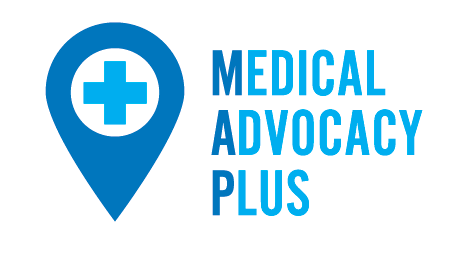07 May COVID-19: THE TWO TYPES OF TESTING
Did you know there are two types of tests for the coronavirus? I’m sure by now you keep hearing the words “we need more tests” or “testing will let us know if we can open up the economy” But what “test” do they mean? Words like antigen, antibody, viral, serology, are intimidating and leave you confused. The pandemic has led us to become investigators of not only the virus, but the medical terminology associated with it. Many people are suffering from fear, uncertainty, and exhaustion, trying to decode the information, and this is where a patient advocate can be of assistance. In this article, I hope to simplify some of the testing and alleviate some of your confusion.
THE TWO TYPES OF TESTS:
The two types of tests for the SARS-CoV-2 (the virus that causes COVID-19) are diagnostic tests and serology tests
1. Diagnostic Tests
Diagnostic testing: Also known as Viral/Antigen Test. Its purpose is to diagnose an active COVID-19 infection. This test determines if you have an active infection of the COVID-19 virus and consists of a nasal swab. Alternative rapid tests, similar to the flu tests we are familiar with at local clinics and physician offices, are currently under investigation. Recently, the FDA authorized a home collection option through LabCorp testing kits. It requires a doctor’s order and will be available in most states in the coming weeks.
2. Antibody Test
Antibody Testing, also known as serological tests, measure the amount of antibodies in the blood to fight the virus. It is different than the diagnostic test, which identifies the current infection. Americans are eager to return to normalcy and work; still, it is essential to understand that serology test help determines how widespread the virus is, what is the actual death rate, and how people acquire the virus and don’t know they have it, not necessarily to determine who has recovered from the virus (with or without symptoms) and developed an immune response. Serology tests also help with treatment using donated antibody-rich blood. These tests are typically taken from a blood sample and take several days for results. The concern they will get sick or infect others, antibody testing could ease people’s fears about returning to work and ensure confidence within the workforce. However, there are some warnings to using these tests for “return to work” recommendations. More research on the accuracy of these tests is needed,
Some Common Questions
- How do I know what test to use? That depends on your situation. If you think you currently have the COVID-19 virus, you would need a diagnostic test. The CDC has guidance for testing, but the decisions about testing are at the discretion of the state and local health departments and or individual clinicians. If you are wondering if you have had the virus in the past or have recovered from it without symptoms, you would need the antibody (serology test).
- What do positive or negative test results mean with diagnostic testing? If you receive a positive test result, you most likely are infected with the virus, and you should follow the recommendations from your healthcare provider or follow the guidelines issued by the CDC. If you test negative for the virus, you probably don’t have the COVID-19 virus; however, a word of caution does not mean you will not get sick, according to the CDC. There is a chance you may have an infection with a negative result. This last statement sounds contradictory and confusing; therefore, reaching out to your patient advocate can help explain and sort through some of the literature and scientific studies about negative test results.
- How do I know if it is safe to return to work if I don’t show symptoms, but may have the virus? The antibody testing (serology testing), will help identify if you have recovered from the coronavirus with or without symptoms. This test does not necessarily tell you if you are immune to the virus or safe to return to work. The CDC recommends hand washing, wearing face masks and protective equipment, and disinfecting your environment.
- Am I immune to COVID-19, or will I catch it again? Because the SARS-CoV-2 virus is new, more studies need to be conducted to give you a definite answer to this question. There are no guarantees about your immunity. There needs to be more widespread testing to know how many people have been exposed to the virus. Your patient advocate can help you weed through some of your questions to educate you further on the use of these tests.
The bottom line is there is still plenty of uncertainty about testing of the COVID-19 virus. Research, including clinical trials, are underway and take time. In the meantime, following the precautions of frequent hand washing, disinfecting your environment, and avoiding unnecessary crowding is your best line of defense.
